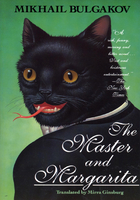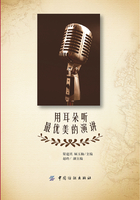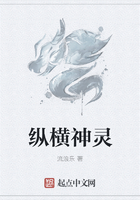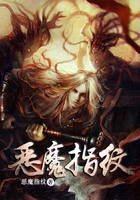"Aren't you going up to see him?" the nurse says at last. Urania knows the question has been struggling to pass the woman's lips ever since she came into the little house on César Nicolás Penson, but instead of asking the nurse to take her to Se?or Cabral's room, she went to the kitchen and fixed herself some coffee. She has been sipping it for the past ten minutes.
"First I'll finish my breakfast," she answers, not smiling, and the nurse lowers her eyes in confusion. "I need strength to climb those stairs."
"I know there was trouble between you and him, I heard something about it," the woman apologizes, not knowing what to do with her hands. "I was just asking. I already gave him his breakfast and shaved him. He always wakes up very early."
Urania nods. She feels calm and confident now. Again she examines the decay around her. The paint on the walls has deteriorated, and the tabletop, the sink, the cupboard, everything looks smaller and misaligned. Was it the same furniture? She didn't recognize anything.
"Does anyone come to visit him? Anybody in the family, I mean."
"Se?ora Adelina's daughters, Se?ora Lucindita and Se?ora Manolita, always come about noon." The woman—tall, no longer young, wearing slacks under her white uniform—stands in the kitchen doorway and does not hide her discomfort. "Your aunt used to come every day. But since she broke her hip, she doesn't go out anymore."
Aunt Adelina was a good deal younger than her father, she couldn't be more than seventy-five. So she broke her hip. Was she still so devout? She took communion every day, back then.
"Is he in his bedroom?" Urania drinks the last of her coffee. "Well, where else would he be? No, don't come up with me."
She climbs the staircase with the discolored railing where, she remembers, pots filled with flowers used to hang, and she can't shake the feeling that the house has shrunk. When she reaches the upper floor, she notices the chipped tiles, some of them loose. This had been a modern house, comfortable, furnished with taste; it has fallen on hard times, it's a hovel compared to the houses and condominiums she saw the night before in Bella Vista. She stops at the first door—this used to be his room—and before she goes in, she knocks a couple of times.
She is greeted by intense light that pours through the wide-open window. The glare blinds her for a few seconds; then she begins to make out the bed covered by a gray spread, the old bureau with its oval mirror, the photographs on the walls—how did he get hold of her graduation picture from Harvard?—and, finally, in the old leather chair with its broad back and arms, an old man in blue pajamas and slippers. He looks dwarfed by the chair. He has grown wrinkled and smaller, just like the house. She is distracted by a white object at her father's feet, a small chamber pot, half filled with urine.
Back then his hair was black except for some distinguished gray at his temples; now the sparse hairs on his bald head are yellowish, dirty. His eyes were large, sure of themselves, masters of the world (when he wasn't near the Chief); but these two slits staring at her are tiny, beady, frightened. He had teeth and now he doesn't; he can't be wearing his dentures (she paid the bill for them a few years ago), because his lips have collapsed and his cheeks are so sunken they almost touch. He has shriveled, his feet barely touch the floor. To look at him she used to have to raise her head, stretch her neck; now, if he were to stand up, he would reach her shoulder.
"It's Urania," she murmurs, approaching him. She sits on the bed, a meter from her father. "Do you remember that you have a daughter?"
There is internal agitation in the old man, movements of the pale bony hands with tapered fingers that rest on his legs. But the narrow little eyes, although they don't move away from Urania, remain unexpressive.
"I don't recognize you either," Urania whispers. "I don't know why I came or what I'm doing here."
The old man has begun to move his head, up and down, down and up. His throat emits a long, harsh, strangled moan, like a lugubrious song. But in a few moments he is calm again, his eyes still fixed on her.
"The house used to be full of books." Urania glances at the bare walls. "What happened to them? Of course, you can't read anymore. Did you have time to read back then? I don't remember ever seeing you read. You were a busy man. I'm busy too now, maybe even more than you in those days. Ten, twelve hours in the office or visiting clients. But I make time to read a little every day. Early in the morning, watching the sun come up behind the Manhattan skyscrapers, or late at night, looking at the lights in those glass beehives. I really like it. On Sundays I read for three or four hours, after Meet the Press. The advantage of being single, Papa. You knew that, didn't you? Your little girl was left behind to dress the saints. That's what you used to say about unmarried women: 'What a failure! She never caught a husband!' Neither did I, Papa. Or rather, I didn't want to. I had offers. At the university. At the World Bank. At the office. Just think, a boyfriend may still turn up. At the age of forty-nine! It isn't so terrible being an old maid. For one thing, I have time to read instead of taking care of a husband and children."
He seems to understand, to be so interested he doesn't dare move a muscle in case he interrupts her. He sits very still, his narrow chest rising and falling rhythmically, his tiny eyes focused on her lips. Outside an occasional car passes, and footsteps, voices, snatches of conversation approach, rise, fall, and are lost in the distance.
"My apartment in Manhattan is full of books," Urania continues. "Like this house when I was a girl. Law, economy, history. But in my bedroom, only Dominican books. Testimonies, essays, memoirs, lots of histories. Can you guess the period? The Trujillo Era, what else? The most important thing that happened to us in five hundred years. You used to say that with so much conviction. It's true, Papa. During those thirty-one years, all the evil we had carried with us since the Conquest became crystallized. You're in some of those books, an important figure. Minister of Foreign Affairs, senator, president of the Dominican Party. Is there anything you weren't, Papa? I've become an expert on Trujillo. Instead of playing bridge or golf, or riding horses, or going to the opera, my hobby has been finding out what happened during those years. It's a shame we can't have a conversation. You could clarify so many things for me, you lived them arm in arm with your beloved Chief, who repaid your loyalty so shabbily. For instance, I would have liked for you to tell me if His Excellency also took my mother to bed."
She sees that the old man is shaken. His fragile, shrunken body has given a start in the chair. Urania moves her head closer and observes him. Is it a false impression? He seems to be listening, making an effort to understand what she is saying.
"Did you allow it? Resign yourself to it? Use it to further your career?"
Urania takes a deep breath. She examines the room. There are two photographs in silver frames on the night table. Her first communion, the year her mother died. Perhaps she left this world with a vision of her little girl enveloped in the tulle of that beautiful dress, with that angelic look. The other photo is of her mother: young, black hair parted in the middle, eyebrows tweezed, eyes melancholy and dreamy. It's an old, yellowing photograph, slightly creased. She goes to the night table, raises the photograph to her lips, and kisses it.
She hears a car braking at the front door. Her heart skips a beat; without moving from her place, she can see, through the curtains, the sparkling chrome, the gleaming body, the flashing brilliance of the luxurious automobile. She hears footsteps, the doorbell chimes two or three times, and—hypnotized, petrified, not moving—she hears the maid opening the door. She hears but doesn't understand the brief conversation at the foot of the stairs. Her madly beating heart is about to explode. Taps on the door. An Indian girl, wearing a maid's uniform, her expression terrified, looks in the half-opened door:
"The President has come to visit you, se?ora. The Generalissimo, se?ora!"
"Tell him I'm sorry but I can't receive him. Tell him Se?ora de Cabral does not receive visitors when Agustín is not at home. Go on, tell him."
The girl's footsteps move away, timid, indecisive, going down the staircase with the railing where flowerpots hang, ablaze with geraniums. Urania replaces her mother's photograph on the nightstand and returns to the corner of the bed. Trapped in the chair, her father looks at her in alarm.
"That's what the Chief did to his Minister of Education, early in his government, and you know all about it, Papa. What he did to the young scholar, Don Pedro Henríquez Ure?a, a refined, genial man. He came to see his wife while Don Pedro was at work. She was brave enough to tell him she didn't receive visitors when her husband wasn't home. At the beginning of the Era it was still possible for a woman to refuse to receive the Chief. When she told him what had happened, Don Pedro resigned, left the country, and never set foot on this island again. Which is why he became so famous as a teacher, a historian, a critic, a philologist, in Mexico, Argentina, and Spain. Lucky for him the Chief wanted to go to bed with his wife. In those early days, a minister could resign and not have an accident, or fall off a cliff, or be stabbed by a madman, or eaten by sharks. He did the right thing, don't you agree? His action saved him from becoming what you became, Papa. Would you have done the same thing or looked away? Like your hated good friend, your despised dear colleague, our neighbor Don Froilán. Do you remember, Papa?"
The old man begins to tremble and moan that macabre song. Urania waits until he settles down. Don Froilán! He would whisper in the living room, on the terrace or in the garden with her father, whom he came to see several times a day during the periods when they were allies in the internecine struggles among the Trujillista factions, battles the Benefactor encouraged in order to neutralize his collaborators by keeping them busy protecting their backs from the knives of enemies who were, in public, their friends, brothers, and fellow believers. Don Froilán lived in the house across the way; on its tiled roof there are, at this very moment, a row of half a dozen pigeons standing at attention. Urania goes to the window. It hasn't changed much either, the house of that powerful man who was also a minister, senator, intendant, chancellor, ambassador, everything one could be during those years. Even Minister of Foreign Affairs, in May 1961, when the great events took place.
The house is still painted gray and white, but it too has grown smaller. An extension of four or five meters has been built on, out of harmony with the projecting pointed arch at the entrance in the style of a Gothic castle, where she often saw, on her way home from school in the afternoons, the elegant figure of Don Froilán's wife. As soon as the woman saw her she would call: "Urania, Uranita! Come here, let me look at you, darling. What eyes, my girl! You're as pretty as your mother, Uranita." She would stroke her hair with carefully manicured hands, the long nails painted a deep red. Urania would feel so dreamy when those fingers moved through her hair and caressed her scalp. Eugenia? Laura? Did she have a flower name? Magnolia? She's forgotten. But not her face, her snowy skin, silken eyes, regal figure. She always seemed to be dressed for a party. Urania loved her because she was so affectionate, because she gave her gifts and took her to the Country Club to swim in the pool, and, above all, because she had been her mother's friend. She imagined that if she hadn't gone to heaven, her mother would be as beautiful and aristocratic as Don Froilán's wife. There was nothing attractive about him, however. Short, bald, fat: no woman would have looked at him twice. Was it the need to find a husband or self-interest that made her marry him?
This is what she asks herself in bewilderment as she opens the box of chocolates, wrapped in metallic paper, that the lady has given her, with a kiss on the cheek, when she came to the door of her house and called her—"Uranita! Come, I have a surprise for you, darling!"—after the girl climbed down from the school bus. Urania goes into her house, kisses the lady—she's wearing a blue tulle dress, high-heeled shoes, enough makeup to go to a dance, a pearl necklace, jewels on her hands—opens the box wrapped in gift paper and tied with a pink ribbon. She looks at the luxurious chocolates, impatient to try them but not daring to—wouldn't that be bad manners?—when the car stops on the street, very near the house. The lady gives a start, the strange kind of movement horses make suddenly, as if hearing a mysterious order. She has turned pale and her voice is urgent: "You have to go." The hand resting on her shoulder twitches, clutches at her, pushes her toward the entrance. When she obediently picks up her book bag and is about to leave, the door opens wide: the overwhelming figure of the gentleman in a dark suit, starched white cuffs and gold cuff links projecting from the sleeves of his jacket, blocks her way. A gentleman who wears dark glasses and is everywhere, including her memory. She stands paralyzed, openmouthed, looking, looking. His Excellency gives her a reassuring smile.
"And who is this?"
"Uranita, Agustín Cabral's daughter," replies the lady of the house. "She's just leaving."
And, in fact, Urania leaves without even saying goodbye because she is struck dumb. She crosses the street, goes into her house, climbs the stairs, and from her bedroom she peers through the curtains, waiting, waiting for the President to come out of the house across the way.
"And your daughter was so naive she didn't even wonder what the Father of the Nation was doing there when Don Froilán wasn't home." Her father, calm now, listens, or seems to listen, not taking his eyes off her. "So naive that when you came home from Congress, I ran to tell you about it. I saw the President, Papa! He came to visit Don Froilán's wife, Papa! What a look you had on your face!"
The narrow little eyes of the invalid want to open wide, want to be round.
"My dear, there are things you can't know, can't understand yet. I'm here to know them for you, to protect you. I love you more than anything in the world. Don't ask me why, but you have to forget about this. You weren't at Froilán's house. You didn't see his wife. And certainly, certainly not the person you dreamed you saw. For your own good, sweetheart. And mine. Don't repeat it, don't tell anybody about it. You promise? Never? Not anybody? You swear?"
"I swore," says Urania. "But not even that was enough to make me suspect anything. Not even when you threatened the servants that if they repeated the girl's fairy tale they would lose their jobs. That's how innocent I was. By the time I discovered why the Generalissimo paid visits to their wives, ministers could no longer do what Henríquez Ure?a did. Like Don Froilán, they had to resign themselves to wearing horns. And gain something from it since they had no alternative. Did you? Did the Chief visit my mother? Before I was born?When I was too little to remember? He visited them when the wives were beautiful. My mother was beautiful, wasn't she? I don't remember him coming here, but he might have before I was born. What did my mother do? Did she accept it? Did she feel happy, proud of the honor? That was the norm, wasn't it? Good Dominican women were grateful when the Chief deigned to fuck them. You think that's vulgar? But that was the verb your beloved Chief used."
Yes, that one. Urania knows, she has read it in her extensive library on the Era. At night, after a few glasses of Carlos I Spanish brandy, Trujillo, so careful, refined, elegant in his speech—a snake charmer when he set his mind to it—would suddenly come out with the filthiest words, talk the way they talk on a sugar plantation, in the bateys, among the stevedores on the Ozama, in the stadiums or brothels, talk the way men talk when they need to feel more macho than they really are. At times the Chief could be savagely vulgar, repeating the harsh curses of his youth, when he was a plantation overseer in San Cristóbal or a guard in the constabulary. His courtiers celebrated them as enthusiastically as the speeches written for him by Senator Cabral or the Constitutional Sot. He even boasted of the "cunts he had fucked," something his courtiers also celebrated even when that could make them potential enemies of Do?a María Martínez, the Bountiful First Lady, and even when those cunts were their wives, sisters, mothers, or daughters. It wasn't an exaggeration of an overheated Dominican imagination, uncontrollably heightening virtues and vices and embellishing real anecdotes until they became fantasies. Some stories were invented, enhanced, colored by this fierce vocation of her compatriots. But the story of Barahona had to be true. Urania hadn't read it, she had heard it (feeling nauseated), told by someone who was always close, very close, to the Benefactor.
"The Constitutional Sot, Papa. Yes, Senator Henry Chirinos, the Judas who betrayed you. I heard it from his own filthy mouth. Are you surprised I was with him? As an official of the World Bank I couldn't avoid it. The director asked me to represent him at the reception given by our ambassador. I mean, the ambassador of President Balaguer. Of the democratic civilian government of President Balaguer. Chirinos made out better than you did, Papa. He got you out of the way, he never fell into disfavor with Trujillo, and in the end he changed direction and adjusted to democracy even though he had been as much of a Trujillista as you. There he was, in Washington, uglier than ever, puffed up like a toad, tending to his guests and drinking like a sponge. Allowing himself the luxury of entertaining his companions with anecdotes about the Trujillo Era. He of all people!"
The invalid has closed his eyes. Has he fallen asleep? His head rests against the back of the chair and his wrinkled, empty mouth hangs open. He looks thinner and more vulnerable this way; through his bathrobe, she catches a glimpse of his hairless chest, the white skin and prominent bones. His breathing is regular. She notices only now that her father wears no socks; his insteps and ankles are those of a child.
He hasn't recognized her. How could he have imagined that this official of the World Bank, who has given him the director's greetings in English, is the daughter of Egghead Cabral, his former colleague and crony? Urania manages to keep her distance from the ambassador after the greeting demanded by protocol, exchanging banalities with people who are obliged to be there, as she is, because of their positions. After a time, she prepares to leave. She approaches the circle listening to the ambassador of the democratic country, but what he is saying stops her cold. Ashen, spotted skin, the maw of an apoplectic beast, a triple chin, his elephantine belly about to burst out of the tight blue suit with its fancy vest and red tie, Ambassador Chirinos says it happened in Barahona, toward the end, when Trujillo, in one of those acts of bravado he was so fond of, announced that in order to set an example and activate Dominican democracy, he, who was retired from government (he had set up his brother Héctor Bienvenido, nicknamed Blacky, as puppet president) would declare his candidacy not for the presidency but for an obscure provincial governorship. And as an opposition candidate!
The ambassador of the democratic country snorts, takes a breath, observes the effect of his words with tiny eyes that are too close together. "Think of it, ladies and gentlemen," he says ironically: "Trujillo, a candidate opposed to his own regime!" He smiles and continues, explaining that in the election campaign, Don Froilán Arala, one of the Generalissimo's right-hand men, delivered a speech urging the Chief to declare not for the governorship but for what he still was in the hearts of the Dominican people: President of the Republic. Everyone thought Don Froilán was following the Chief's instructions. Not so. Or, at least—Ambassador Chirinos empties his glass of whiskey with a malicious glint in his eyes—not so that night, for it might also be true that Don Froilán had done as the Chief ordered and the Chief changed his mind and decided to go on with the farce for a few more days. He would do that sometimes, even if it made his most talented collaborators look ridiculous. Don Froilán Arala's head might display a pair of baroque horns, but it also boasted exceptional brains. The Chief penalized him for his hagiographic speech as he usually did: by humiliating him where it hurt most, in his honor as a man.
All of the local elite were at the reception given for the Chief by the leaders of the Dominican Party of Barahona. They danced and drank. Suddenly, when it was very late, the Chief, feeling very good, before a huge audience composed exclusively of men—military from the local garrison, ministers, senators, and deputies who were accompanying him on the campaign tour, governors, political leaders—whom he had been regaling with recollections of his first campaign tour three decades earlier, and adopting that sentimental, nostalgic look he put on suddenly at the end of parties, as if succumbing to an attack of weakness, exclaimed:
"I have been a well-loved man. A man who has held in his arms the most beautiful women in this country. They have given me the energy to go on. Without them, I never could have done what I did." (He raised his glass to the light, examined the liquid, confirmed its transparency, the sharpness of its color.) "Do you know which was the best of all the cunts I fucked?" ("Forgive me, my friends, for the vulgarity," the diplomat apologized, "I'm quoting Trujillo exactly.") (He paused again, inhaled the bouquet of his glass of brandy. The silvery head looked for and found, in the circle of gentlemen listening to him, the fat, livid face of the minister. And he concluded:) "Froilán's wife!"
Urania grimaces in disgust, as she had on the night when she heard Ambassador Chirinos add that Don Froilán had smiled heroically, laughed, celebrated with the others the Chief's witticism. "White as a sheet, not fainting, not falling down with a heart attack," declared the diplomat.
"How was it possible, Papa? How could a man like Froilán Arala, cultured, educated, intelligent, accept that? What did he do to all of you? What did he give you that turned Don Froilán, Chirinos, Manuel Alfonso, you, all his right- and left-hand men, into filthy rags?"
You don't understand, Urania, though there are many things about the Era that you've come to understand; at first, some of them seemed impenetrable, but after reading, listening, investigating, thinking, you've come to understand how so many millions of people, crushed by propaganda and lack of information, brutalized by indoctrination and isolation, deprived of free will and even curiosity by fear and the habit of servility and obsequiousness, could worship Trujillo. Not merely fear him but love him, as children eventually love authoritarian parents, convincing themselves that the whippings and beatings are for their own good. But what you've never understood is how the best-educated Dominicans, the intellectuals of the country, the lawyers, doctors, engineers, often graduates of very good universities in the United States or Europe, sensitive, cultivated men of experience, wide reading, ideas, presumably possessing a highly developed sense of the ridiculous, men of feeling and scruples, could allow themselves to be as savagely abused (they all were, at one time or another) as Don Froilán Arala was that night in Barahona.
"Too bad you can't speak," she repeats, returning to the present. "We'd try to understand it, together. What made Don Froilán maintain a slavish loyalty to Trujillo? He was loyal to the end, like you. He didn't take part in the conspiracy, and neither did you. He went on licking the hand of the Chief who boasted in Barahona that he had fucked his wife. The Chief who kept him traveling through South America as Chancellor of the Republic, visiting governments from Buenos Aires to Caracas, from Caracas to Rio or Brasília, from Brasília to Montevideo, from Montevideo to Caracas, just so he could go on fucking our beautiful neighbor in peace."
It is an image that has pursued Urania for a long time, one that makes her laugh and makes her indignant. The image of the Era's Minister of Foreign Affairs getting in and out of planes, traveling to South American capitals, obeying the peremptory orders that waited for him at every airport so he would continue his hysterical journey, pestering governments for inane reasons. Just to keep him from returning to Ciudad Trujillo while the Chief was screwing his wife. Crassweller himself, the best-known biographer of Trujillo, mentioned it. So everybody knew, including Don Froilán.
"Was it worth it, Papa? Was it for the illusion that you were wielding power? Sometimes I think it wasn't, that success was secondary. That you, Arala, Pichardo, Chirinos, álvarez Pina, Manuel Alfonso, really liked getting dirty. That Trujillo pulled a vocation for masochism up from the bottom of your souls, that you were people who needed to be spat on and mistreated and debased in order to be fulfilled."
The invalid looks at her without blinking, without moving his lips or the small hands resting on his knees. Like a mummy, a small embalmed man, a wax doll. His robe is faded, threadbare in places. It must be very old, bought ten or fifteen years ago. There's a knock on the door. She says "Come in," and the nurse appears, carrying a plate with pieces of mango cut into half-moon shapes and some mashed apple or banana.
"At midmorning I always give him some fruit," she explains from the door. "The doctor says his stomach shouldn't be empty for too long. Since he barely eats, I have to feed him three or four times a day. At night, just some broth. May I?"
"Yes, come in."
Urania looks at her father and his eyes remain on her; they don't move to look at the nurse even when she sits in front of him and begins to give him little spoonfuls of food.
"Where are his dentures?"
"We had to take them out. He's gotten so thin they made his gums bleed. For what he eats, broth, cut-up fruit, purees, things from the blender, he doesn't need them."
For a long while they are silent. When the invalid finishes swallowing, the nurse brings the spoon up to his lips and waits patiently for the old man to open his mouth. Then, delicately, she gives him the next mouthful. Does she always do this? Or is her delicacy due to the presence of his daughter? No question. When she's alone with him she must scold him and pinch him, like nannies with babies who don't talk yet, when their mothers can't see them.
"Give him a few mouthfuls," says the nurse. "He wants you to. Isn't that right, Don Agustín? You want your daughter to give you this nice food, don't you? Yes, yes, he'd like that. Give him a few mouthfuls while I go downstairs for his glass of water. I forgot it."
She places the half-empty plate in Urania's hands, who accepts it mechanically, and she goes out, leaving the door open. After hesitating a few moments, Urania brings the spoon that holds a slice of mango up to his mouth. The invalid, who has still not taken his eyes off her, closes his mouth, clenching his lips like a difficult child.














